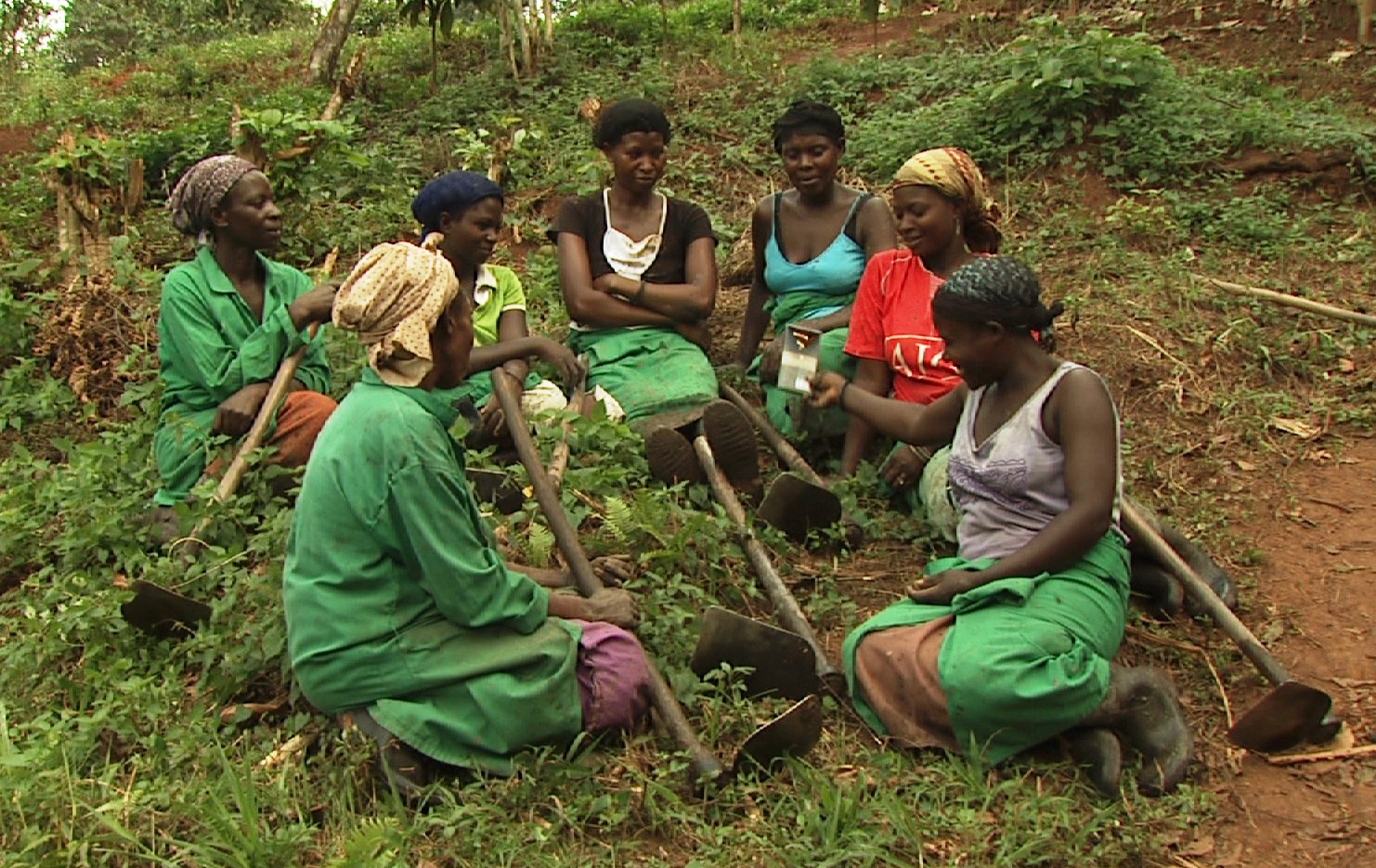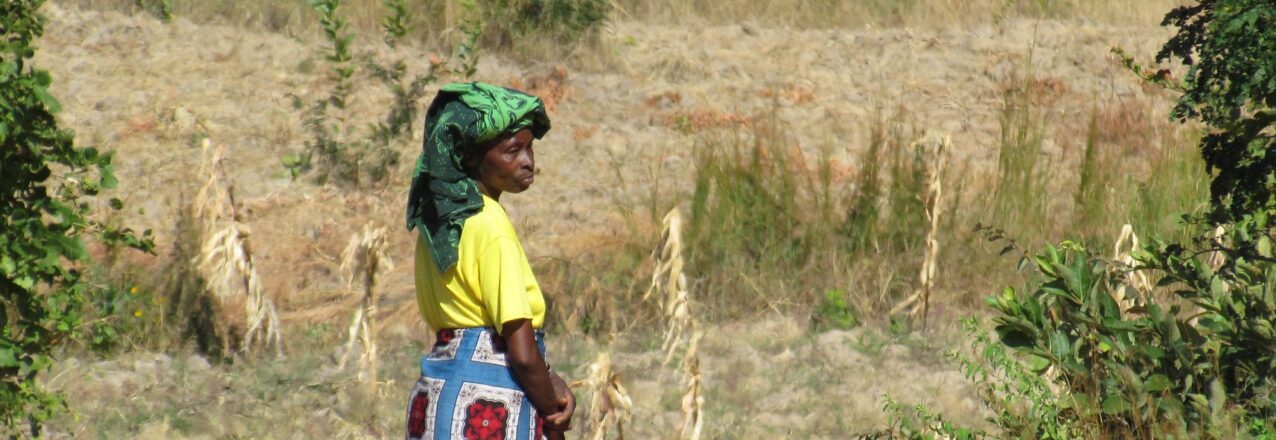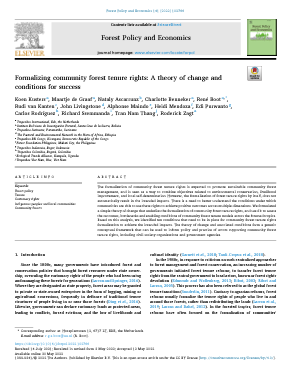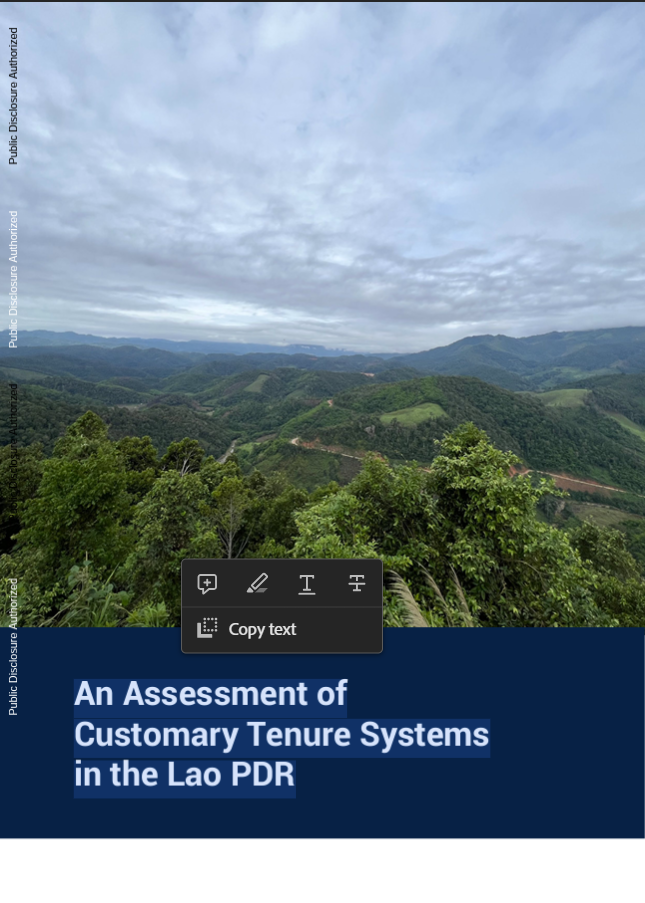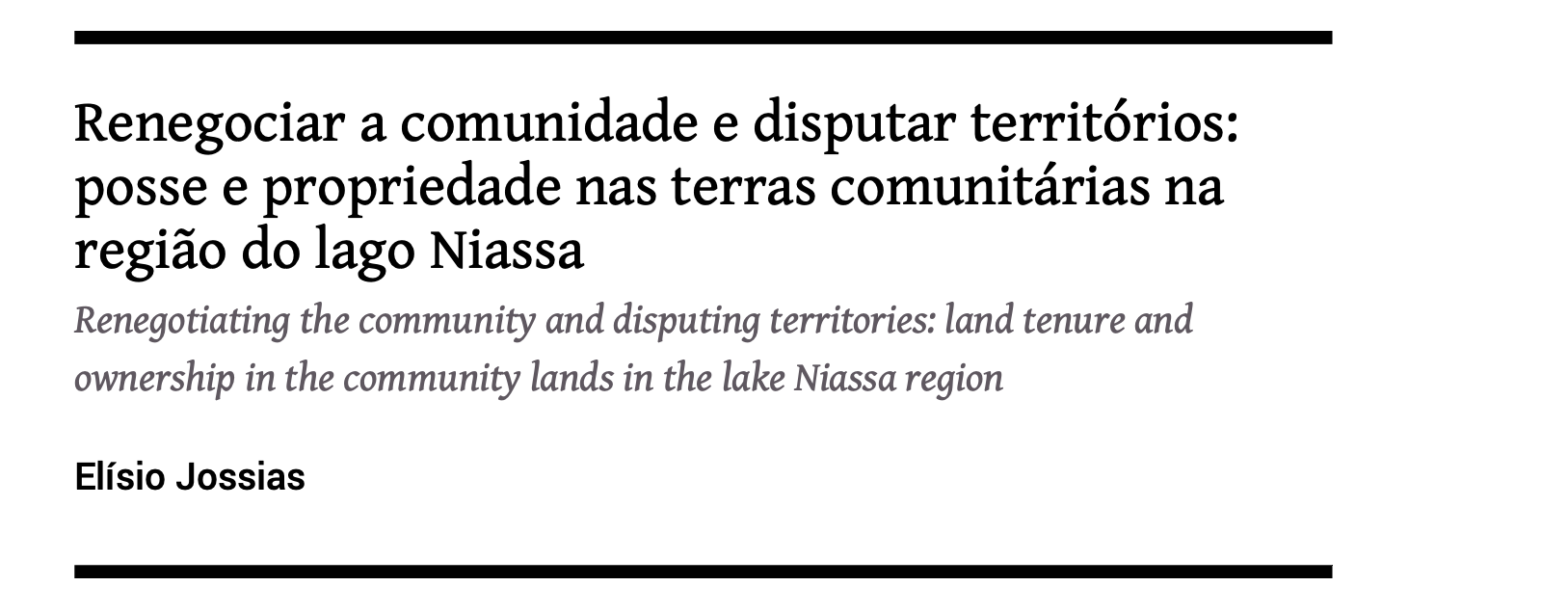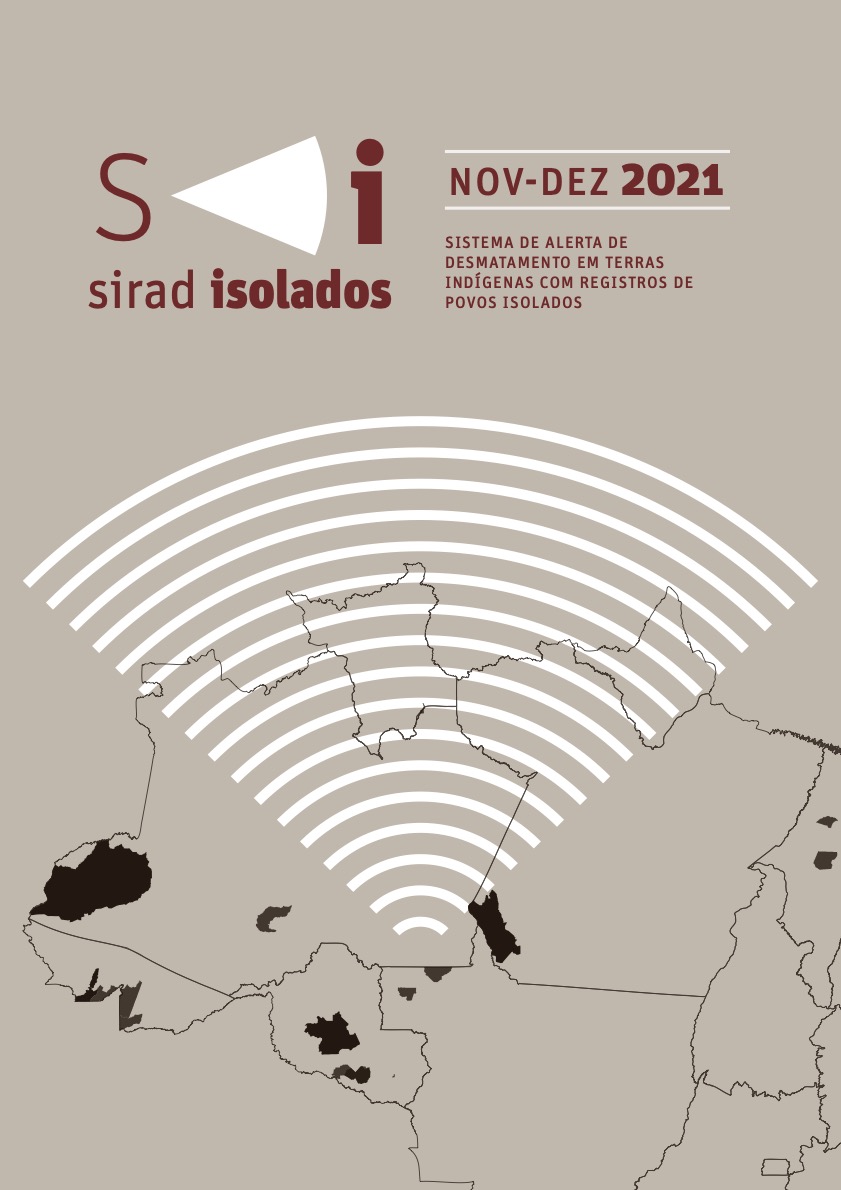Targeted Study on the Role of Customary Land Formalization in Women's Economic Empowerment
This report presents the results of a mixed-methods study on the role of customary land documentation in strengthening Women’s Economic Empowerment (WEE).
Targeted Study on the Role of Customary Land Formalization in Women’s Economic Empowerment
This report presents the results of a mixed-methods study on the role of customary land documentation in strengthening Women’s Economic Empowerment (WEE).
Formalizing community forest tenure rights: A theory of change and conditions for success
The formalization of community forest tenure rights is expected to promote sustainable community forest management, and is seen as a way to combine objectives related to environmental conservation, livelihood improvement, and local self-determination. However, the formalization of forest tenure rights by itself, does not automatically result in the intended impacts.
An Assessment of Customary Tenure Systems in the Lao PDR
The history of land rights in the Lao People’s Democratic Republic (Lao PDR), hereafter referred to as Laos, is a history of customary land tenure systems which remain the most prevalent form of land tenure.
Renegociar a comunidade e disputar territórios: posse e propriedade nas terras comunitárias na região do lago Niassa
O presente artigo parte da experiência de delimitação de terras comunitárias, em Cóbuè, província do Niassa, para analisar a interface entre as lideranças tradicionais e os sistemas costumeiros de terras, em Moçambique, enquadrando os debates sobre terra e território, posse e propriedade da terra, bem como os encontros com a história territorial, os impactos das transformações, da legislação e
Renegociar a comunidade e disputar territórios: posse e propriedade nas terras comunitárias na região do lago Niassa
O presente artigo parte da experiência de delimitação de terras comunitárias, em Cóbuè, província do Niassa, para analisar a interface entre as lideranças tradicionais e os sistemas costumeiros de terras, em Moçambique, enquadrando os debates sobre terra e território, posse e propriedade da terra, bem como os encontros com a história territorial, os impactos das transformações, da legislação e
Ambiguous Outcomes of Returnees’ Land Dispute Resolution and Restitution in War-Torn Burundi
Redressing land dispossession in the aftermath of violent conflicts is daunting and complex. While land dispute resolution and restitution are expected to promote return migration, this outcome is contingent upon the changing social, economic and political conditions under which return takes place.
Consultation and Displacement in Large-Scale Agriculture Investment: Evidence from Oromia Region’s Shashamane Rural District
The Shashamane rural district was selected as a target area and corridor of large-scale agriculture investment (LSAI) to produce surplus agricultural products and ensure local development by the state and private (domestic and foreign) investors. Shalo–Melega private LSAI projects started operation in 2008 in the Shashamane rural district.
National Land Coalitions And The Preservation Of Communities’ Ancestral Land Heritage In Africa
National Land Coalitions (NLCs) work towards the recognition, defence, protection and redistribution of land rights at national level. They build upon frameworks on land tenure developed and agreed by different regional and intergovernmental institutions.
(Un)making the upland: resettlement, rubber and land use planning in Namai village, Laos
This paper highlights how farmers in a northern Lao village transformed their customary land rights – in the face of incoherent overlapping state territorialization attempts – into a territorial strategy to secure their land tenure.
Relatório: Sistema de alerta de desmatamento em terras indígenas com registros de povos isolados
No último boletim SIRAD I de 2021, apresentamos os resultados do mape amento de desmatamento detectados durante este período dentro dos territórios dos povos isolados. O ritmo de desmatamento descreceu em 15 % em relação ao ano passado, entretanto não temos motivos parar comemorar, pois as causas/motores que incentivam a invasão ilegal dessas terras continua forte.

